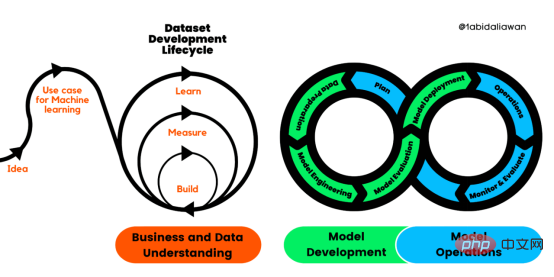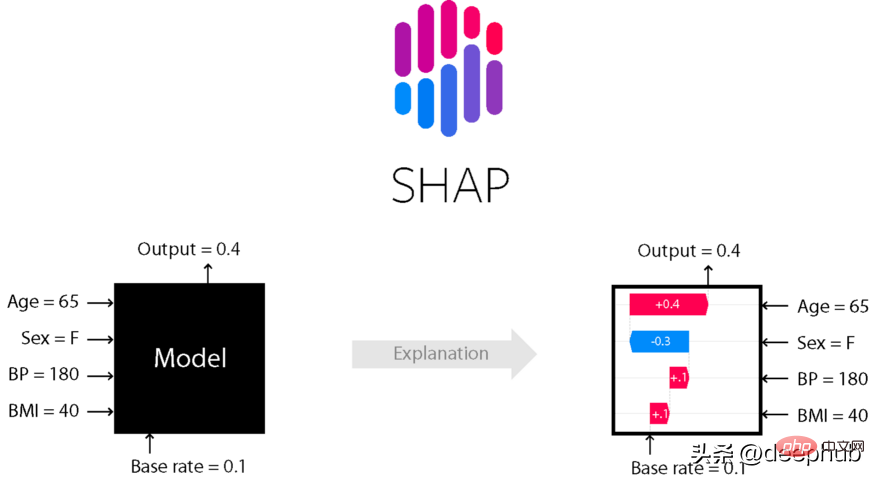
tp3.2 Documentation http://www.php.cn/xiazai/shouce/31
Usage of capital letters
- A function is used to instantiate the controller
- Format: [resource://][module/]controllerA($name,$layer='',$level ='')
@param string $name 资源地址 @param string $layer 控制层名称 @param integer $level 控制器层次 @return Controller|false
##B executes a certain behavior B($name,$tag='',&$params=NULL)This is a new function that comes into being with the behavior. It can execute a certain behavior, such as B('app_begin');@param string $name 行为名称 @param string $tag 标签名称(行为类无需传入) @param Mixed $params传入的参数 @return void
It is to execute all the functions defined by this behavior before the project starts. It supports 2 Parameters, the second parameter supports the need to accept an array
For example
B('app_begin',array("name"=>"tdweb","time"=>time()));
C Read and set configuration parameters C($name= null,$value=null,$default=null)Get the value:@paramstring|array $name 配置变量 @param mixed $value 配置值 @param mixed $default 默认值 @return mixed
Set the value:Get all settings: C(); does not pass any parameters, Returns an array containing all settings.
- Get the specified configuration: C('URL_MODEL') This way you can get the configuration information of URL_MODEL
- Get the specified two-dimensional array configuration: C("array.name") This way you can return the array The key under array is the value corresponding to name
Assign a value to the two-dimensional array C("array.name", "value"), the principle is the same as above (get the value of array.name), the following value is the value
- Batch assignment:
$test=array("URL_MODEL"=>1,"THIN_MODEL"=>true"); C($test); 这样直接将数组里的值赋值了Judge whether to assign value: C("?URL_MODEL")这样前边加个"?",如果已经赋值,则返回trueIt should be noted that, Although the configuration value is changed here, it is only changed on this page, and it will not work on the next page.If you want to change it permanently, you need to cooperate with the F function to write the configuration file into config. PHP will do.
The D function is used to instantiate the model class format [resource://][module/]model D($name='',$ layer='')@param string $name 资源地址 @param string $layer 模型层名称 @return ModelThe D function has two advantages:First, if this Model has been instantiated before, it will no longer be instantiated, saving resources;
- The second is to facilitate debugging. If this Model does not exist, a TP exception will be thrown, which is very user-friendly.
- If you want to access the Model of this project directly, D("Model name"); is fine. If you plan to access across projects, use D("Model name", "Project name");
EThrow exception handlingE($msg, $code=0)@param string $msg异常消息 @param integer $code 异常代码默认为0 @return void
F Fast file data reading and saving For simple type data strings and arrays F($name, $value='',$path=DATA_PATH)@param string $name 缓存名称 @param mixed $value 缓存值 @param string $path 缓存路径 @return mixed
- Quickly save data: F("mydata","Here is The data to be saved"), thus saving a file named mydata.php in the project Data directory, and the content inside is the second parameter of the function.
- Specify the storage time: F("mydata","Here is the data to be saved","60"), so that if the next access is more than 60 seconds, the cache file will be deleted.
- Specify the saving directory: F("mydata","Here is the data to be saved","60",DATA_PATH), so it is specified to be saved in the data directory.
- Delete the cache immediately: F("mydata",null), the second parameter passes a null value, so the cache of mydate is deleted
- Read the cache data: F("mydata"), so the cache is read
G recording and statistical time (microseconds) and memory usageG($start,$end='',$dec=4)Usage method:G('begin'); // 记录开始标记位 // ... 区间运行代码 G('end'); // 记录结束标签位 echo G('begin','end',6); //统计区间运行时间精确到小数后6位 echo G('begin','end','m'); // 统计区间内存使用情况 如果end标记位没有定义,则会自动以当前作为标记位Among them, statistical memory usage is required MEMORY_LIMIT_ON is only valid when the constant is true@param string $start 开始标签 @param string $end 结束标签 @paraminteger|string $dec小数位或者m @return mixed
I obtain input parameters support filtering and default valuesI($name,$default='',$filter=null)Usage method:I('id',0); //获取id参数自动判断get或者post I('post.name','','htmlspecialchar s'); //获取$_POST['name'] I('get.'); //获取$_GET
L() gets and sets the language definition (not case sensitive)L($name=null,$value=null)@paramstring|array $name 语言变量 @param mixed $value 语言值或者变量 @return mixedLanguage definition function, L("intro") gets the language defined as intro, l("intro" , "Introduction") Assign a value to intro
M function is used to instantiate a Model without a model fileM($name='',$tablePrefix='',$connection='')@param string $name Model名称支持指定基础模型例如MongoModel:User @param string $tablePrefix表前缀 @param mixed $connection 数据库连接信息 @return Model
NSet and get statistical dataN($key,$step=0,$save=false)Usage method:N('db',1); // 记录数据库操作次数 N('read',1); // 记录读取次数 echo N('db'); // 获取当前页面数据库的所有操作次数 echo N('read'); // 获取当前页面读取次数@param string $key 标识位置 @param integer $step 步进值 @return mixed
##R Remote call controller operation method URL parameter format [resource://] [Module/]Controller/Operation
R($url,$vars=array(),$layer='')@param string $url调用地址 @paramstring|array $vars调用参数支持字符串和数组 @param string $layer 要调用的控制层名称 @return mixed
Get the template file format resource://module@Theme/Controller/Operation
T($template='',$layer='')@param string $name 模版资源地址 @param string $layer 视图层(目录)名称 @return string
U()URL assembly supports different URL patterns
U($url='',$vars='',$suffix=true,$domain=false)@param string $url URL表达式,格式:'[模块/控制器/操作#锚点@域名]?参数1=值1&参数2=值2...' @paramstring|array $vars传入的参数,支持数组和字符串 @param string $suffix 伪静态后缀,默认为true表示获取配置值 @paramboolean $domain 是否显示域名 @return stringUsage:
- 取得当前模块的Action地址 :U("/nowMethod");
- 取得当前模块的Action地址,并传递参数:U("/nowMethod?params=test");
- (如果不习惯上边那种方式,可以使用U("/nowMethod",array("params"=>"test");这样的数组方式传递参数,效果是一样的)
- 访问其他模块的方法:U("Other/otherMethod"),这样就是访问Other模块下的otherMethod方法
跨项目访问:
U("appname://Other/otherMethod");使用路由访问:
U("appName://routeName@moduleName/actionName?params");另外,如果想直接跳转,那么就在第二个参数写1
U("/nowMethod",1)这样就直接调转到指定URL了
W渲染输出Widget
W($name,$data=array())@param string $name Widget名称 @param array $data 传入的参数 @return void
S缓存管理
S($name,$value='',$options=null)@param mixed $name 缓存名称,如果为数组表示进行缓存设置 @param mixed $value 缓存值 @param mixed $options 缓存参数 @return mixed
- 全局缓存读写函数,和C类似,不过是直接写成文件,写在Temp目录下,不过在缓存有一点需要注意,
- 如果缓存名称是aaa,那么缓存生成的文件名称就是md5("aaa")的值。
技术
防止xss攻击
简单的防止
当网站不涉及复杂的用户交互时,可以对用户所有提交的文本进行htmlspecialchars函数处理。
- 版本为:3.2
- 步骤:
- 一:在项目配置文件中添加配置: 'DEFAULT_FILTER' => 'htmlspecialchars', //默认过滤函数
- 二: 使用框架带的I方法获取来自用户提交的数据;
-
例子
M('Member')->save(array('content'=>I('post.content')));
对COOKIE进行IP绑定
- cookie的信息一但被别人通过XSS攻击获取后也一样等同于把自己的帐号密码给了别人。
- 对cookie进行IP绑定,(当然也可以获取用户客户端更多的其它信息进行同时绑定)可以根据用户的IP来判断这个cookie是不是来原始授权用户。
示例
- 用户设置了自动登录时保存自动登录信息:
$auto=I('post.auto');//用户设置了自动登录 if(!empty($auto)){ cookie('auto',encrypt(serialize($data)));//将登录信息保存到cookie,其中$data里含有加密后的帐号,密码,和用户的IP,这里的cookie已在全局中设置过期日期为一周 } - 用户关闭浏览器再次访问网站时,进行自动登录
if (!is_login()) {//是否未登录状态? $auth=cookie('auto'); if(!empty($auth)){//是否未有自动登录cookie? $data=unserialize(decrypt($auth)); if(!empty($data) && !empty($data['username']) && !empty($data['password']) && !empty($data['last_login_ip'])){ $user=M('Member')->where(array('username'=>$data['username'],'password'=>$data['password']))->find(); if(!empty($user['id'])&&($user['last_login_ip']==get_client_ip())){//cookie帐号密码是否有效?//IP来源是否相同? login_session($user['id'], $user['username'], $data['last_login_ip']);//用户自动登录成功 } } } }
- 优点:大多数场景下可使被XSS攻击盗取的cookie失效。
- 缺点:由于IP存在多台电脑共用的可能,对绑定做不到十分精细
为COOKIE添加httponly配置
可以保证cookie只在http请求中被传输,而不被页面中的脚本获取,现市面上绝大多数浏览器已经支持。
HTML5的新特性:
<iframe></iframe>
为iframe的增加的sandbox属性,可以防止不信任的Web页面执行某些操作.相信这个方法以后会被广泛使用。
富文本过滤
5.0文档
The above is the detailed content of Summary of tp framework development. For more information, please follow other related articles on the PHP Chinese website!
 解读CRISP-ML(Q):机器学习生命周期流程Apr 08, 2023 pm 01:21 PM
解读CRISP-ML(Q):机器学习生命周期流程Apr 08, 2023 pm 01:21 PM译者 | 布加迪审校 | 孙淑娟目前,没有用于构建和管理机器学习(ML)应用程序的标准实践。机器学习项目组织得不好,缺乏可重复性,而且从长远来看容易彻底失败。因此,我们需要一套流程来帮助自己在整个机器学习生命周期中保持质量、可持续性、稳健性和成本管理。图1. 机器学习开发生命周期流程使用质量保证方法开发机器学习应用程序的跨行业标准流程(CRISP-ML(Q))是CRISP-DM的升级版,以确保机器学习产品的质量。CRISP-ML(Q)有六个单独的阶段:1. 业务和数据理解2. 数据准备3. 模型
 thinkphp是不是国产框架Sep 26, 2022 pm 05:11 PM
thinkphp是不是国产框架Sep 26, 2022 pm 05:11 PMthinkphp是国产框架。ThinkPHP是一个快速、兼容而且简单的轻量级国产PHP开发框架,是为了简化企业级应用开发和敏捷WEB应用开发而诞生的。ThinkPHP从诞生以来一直秉承简洁实用的设计原则,在保持出色的性能和至简的代码的同时,也注重易用性。
 Python 强大的任务调度框架 Celery!Apr 12, 2023 pm 09:55 PM
Python 强大的任务调度框架 Celery!Apr 12, 2023 pm 09:55 PM什么是 celery这次我们来介绍一下 Python 的一个第三方模块 celery,那么 celery 是什么呢? celery 是一个灵活且可靠的,处理大量消息的分布式系统,可以在多个节点之间处理某个任务; celery 是一个专注于实时处理的任务队列,支持任务调度; celery 是开源的,有很多的使用者; celery 完全基于 Python 语言编写;所以 celery 本质上就是一个任务调度框架,类似于 Apache 的 airflow,当然 airflow 也是基于 Python
 6个推荐的Python框架,用于构建可解释的人工智能系统(XAI)Apr 26, 2023 am 10:49 AM
6个推荐的Python框架,用于构建可解释的人工智能系统(XAI)Apr 26, 2023 am 10:49 AMAI就像一个黑匣子,能自己做出决定,但是人们并不清楚其中缘由。建立一个AI模型,输入数据,然后再输出结果,但有一个问题就是我们不能解释AI为何会得出这样的结论。需要了解AI如何得出某个结论背后的原因,而不是仅仅接受一个在没有上下文或解释的情况下输出的结果。可解释性旨在帮助人们理解:如何学习的?学到了什么?针对一个特定输入为什么会做出如此决策?决策是否可靠?在本文中,我将介绍6个用于可解释性的Python框架。SHAPSHapleyAdditiveexplanation(SHapleyAdditi
 如何在PHP中使用AOP框架May 19, 2023 pm 01:21 PM
如何在PHP中使用AOP框架May 19, 2023 pm 01:21 PMAOP(面向切面编程)是一种编程思想,用于解耦业务逻辑和横切关注点(如日志、权限等)。在PHP中,使用AOP框架可以简化编码,提高代码可维护性和可扩展性。本文将介绍在PHP中使用AOP框架的基本原理和实现方法。一、AOP的概念和原理面向切面编程,指的是将程序的业务逻辑和横切关注点分离开来,通过AOP框架来实现统一管理。横切关注点指的是在程序中需要重复出现并且
 Microsoft .NET Framework 4.5.2、4.6 和 4.6.1 将于 2022 年 4 月终止支持Apr 17, 2023 pm 02:25 PM
Microsoft .NET Framework 4.5.2、4.6 和 4.6.1 将于 2022 年 4 月终止支持Apr 17, 2023 pm 02:25 PM已安装Microsoft.NET版本4.5.2、4.6或4.6.1的MicrosoftWindows用户如果希望Microsoft将来通过产品更新支持该框架,则必须安装较新版本的Microsoft框架。据微软称,这三个框架都将在2022年4月26日停止支持。支持日期结束后,产品将不会收到“安全修复或技术支持”。大多数家庭设备通过Windows更新保持最新。这些设备已经安装了较新版本的框架,例如.NETFramework4.8。未自动更新的设备可能
 TP6 Think-Swoole RPC服务的性能优化与调试Oct 12, 2023 am 11:16 AM
TP6 Think-Swoole RPC服务的性能优化与调试Oct 12, 2023 am 11:16 AMTP6Think-SwooleRPC服务的性能优化与调试一、引言随着互联网的迅猛发展,分布式计算已经成为了现代软件开发中不可或缺的一部分。在分布式计算中,RPC(RemoteProcedureCall,远程过程调用)是一种常用的通信机制,通过它可以实现跨网络的方法调用。Think-Swoole作为一个高性能的PHP框架,可以很好地支持RPC服务。但是
 KB5013943 2022 年 5 月更新使 Windows 11 上的应用程序崩溃Apr 16, 2023 pm 10:52 PM
KB5013943 2022 年 5 月更新使 Windows 11 上的应用程序崩溃Apr 16, 2023 pm 10:52 PM如果你在Windows11上安装了2022年5月累积更新,你可能已经注意到你一直使用的许多应用程序都不像以前那样工作了。强制性安全更新KB5013943正在使某些使用.NET框架的应用程序崩溃。在某些情况下,用户会收到错误代码:0xc0000135。可选更新中报告了类似的问题,但并不普遍。随着2022年5月的更新,该错误似乎已进入生产渠道,这次有更多用户受到影响。崩溃在使用.NETFramework的应用程序中很常见,Discord或MicrosoftTeams等


Hot AI Tools

Undresser.AI Undress
AI-powered app for creating realistic nude photos

AI Clothes Remover
Online AI tool for removing clothes from photos.

Undress AI Tool
Undress images for free

Clothoff.io
AI clothes remover

AI Hentai Generator
Generate AI Hentai for free.

Hot Article

Hot Tools

SAP NetWeaver Server Adapter for Eclipse
Integrate Eclipse with SAP NetWeaver application server.

Dreamweaver Mac version
Visual web development tools

ZendStudio 13.5.1 Mac
Powerful PHP integrated development environment

Atom editor mac version download
The most popular open source editor

SublimeText3 Linux new version
SublimeText3 Linux latest version







